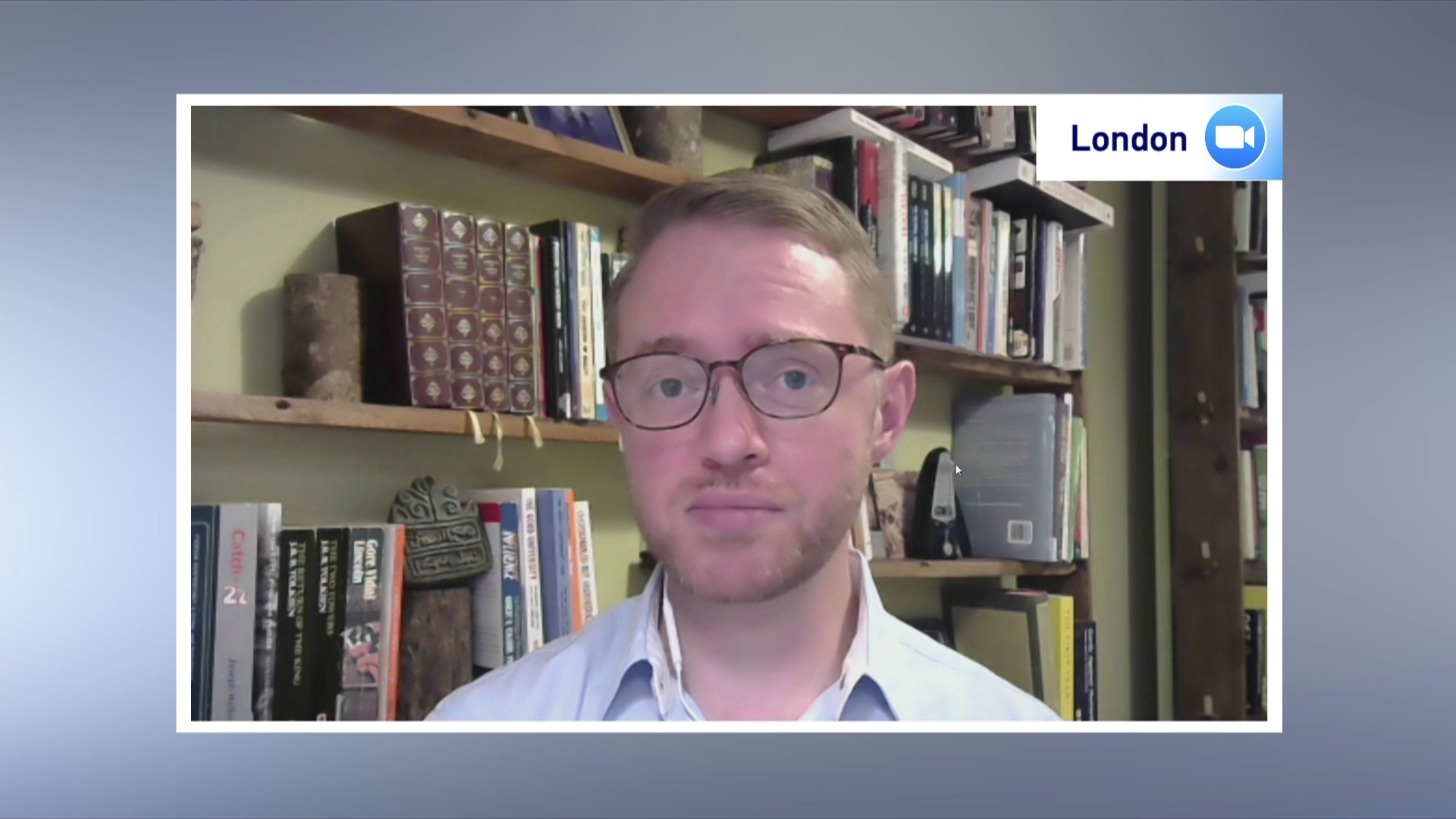04:55

A leading British academic has told CGTN Europe that Brexit talks will probably fail.
"The negotiating positions (between the EU and UK) have never been compatible from the beginning," said Lee Jones, reader in International Politics at Queen Mary University of London. "The two sides are really quite fundamentally far apart."
The year-long transition period, agreed after the UK left the EU last January, ends on December 31.
If no deal is reached, the UK will trade with the EU on World Trade Organization terms, leading to new tariffs and price rises for some goods. There will also be increased bureaucracy for businesses which trade across the border.

Jones said the EU was better prepared to withstand the ensuing economic disruption because the hit will be taken across multiple economies, but the costs to the UK would "pale into insignificance against the costs of the lockdowns related to COVID-19."
He called former UK Prime Minister Gordon Brown's suggestion that no deal would pit the country in a "war" against the continent as "Remainer histrionics" uttered by those who have refused to accept the country's departure from the bloc.
"It's nonsense," said Jones. "The vast majority of states in the world trade with the European Union on World Trade Organization terms."
The EU wants a deal finalised before a European Council Meeting on Thursday December 10, with UK Prime Minister Boris Johnson and European Commission president Ursula von der Leyen set to hold emergency talks on Monday (December 7) to try to break the deadlock.

UK Brexit negotiator David Frost arrives in Brussels on Sunday. /Johanna Geron /Reuters
UK Brexit negotiator David Frost arrives in Brussels on Sunday. /Johanna Geron /Reuters
Talks have foundered on three major issues. Firstly, the so-called 'level playing field' ensuring fair competition between the UK and EU. The UK is resisting demands from the bloc that the UK should stick closely to EU rules on environmental regulations, workers' rights, and state aid given by government to businesses.
Secondly, the EU wants maximum access for European fishing boats in UK waters. The UK says it is now an independent coastal state and wants to prioritize its own fishing fleets.
Finally comes the issue of the governance of any future agreement, namely how any new rules would be enforced. The EU wants the European Court of Justice to have an important role, a demand fiercely resisted by the UK.
As the UK's chief negotiator David Frost arrived in Brussels for last-ditch talks, his government's threat to press ahead with legislation that would break an earlier Brexit deal was dismissed as a "negotiating tactic" by Irish Foreign Minister Simon Coveney.
Frost told reporters after arriving in Brussels that his team would be working very hard to try to get a deal.
Since Britain formally left the EU on January 31, negotiators have missed a series of deadlines to reach a deal with the world's largest trading bloc before the status quo transition period ends.
Source(s): Reuters

